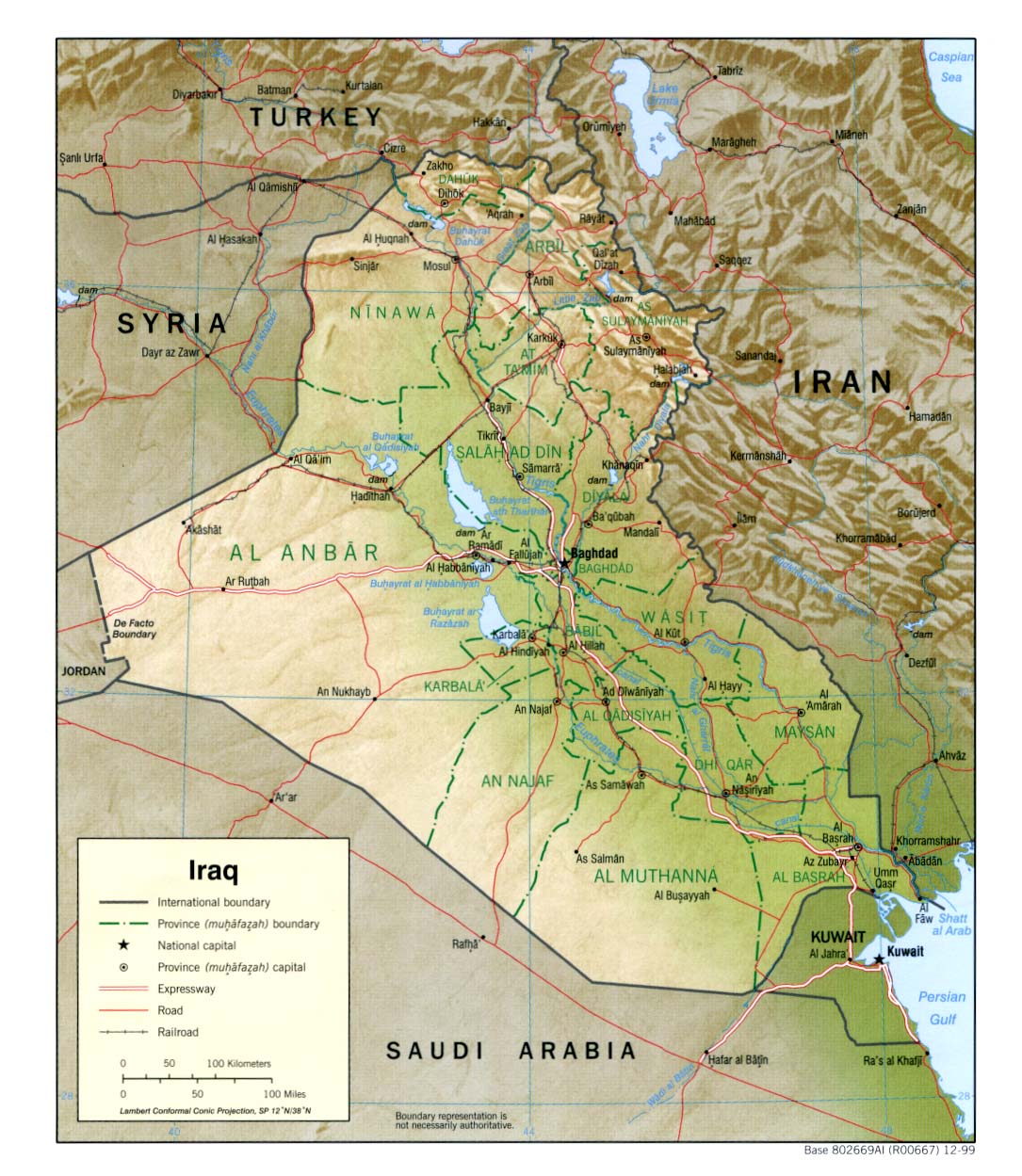
After a year and a half of hearing that we went to "War for Oil" and that Bush just had a gripe because his father was beat, I'd like to review some of the reasons we went to war.
Below: A concurrent timeline, if you will.
End of the Persian Gulf War: We signed a cease fire with Iraq, and established a No Fly zone, I believe in southern Iraq, which was maintained by the US Air Force.
The next 14 years:
1. While on our air superiority missions, US pilots were shot at nearly 1000 times by the Iraq Army.
CNN: "U.S. and British aircraft monitor the northern and southern no-fly zones, which were put in place following the 1991 Persian Gulf War as part of an effort to prevent the Iraqi government of President Saddam Hussein from persecuting the minority Shiite Muslims in the south and the Kurdish population in northern Iraq.
There have been more than 900 separate incidents of Iraqi surface-to-air missile and anti-aircraft artillery fire directed at coalition aircraft since December 1998, including more than 275 in this calendar year, the Pentagon said last month."
Obviously, this was a blatant violation of the Cease fire agreement signed at the end of the war, and in and of itself, would be justification for renew hostilities.
WCQ"However, ten years after the end of the Gulf War Saddam Hussein is still defiant to UN resolutions demanding a halt to his nuclear, biological, and chemical weapons production. "
As the sanctions were a part of the cease-fire, this in and of itself was also complete justification for a renewal of the conflict.
3. Saddam ordered the mass murder of Kurdish partisans with chemical weapons, killing thousands.
Physicians for Human Rights "Eyewitnesses have said that Iraqi warplanes dropped three clusters each of four bombs on the village of Birjinni on August 25, 1988. Observers recall seeing a plume of black, then yellowish smoke, followed by a not-unpleasant odor similar to fertilizer, and also a smell like rotten garlic. Shortly afterwards, villagers began to have trouble breathing, their eyes watered, their skin blistered, and many vomited--some of whom died. All of these symptoms are consistent with a poison gas attack.
"These scientific results prove beyond a shadow of a doubt that the Iraqi government has consistently lied to the world on denying that these attacks occurred," said PHR and HRW. "They also send a clear signal that chemical weapons attacks cannot be launched in the belief that the natural elements will quickly cover up the evidence.""
4. It is extremelyhard to believe that Iraq had no terrorist connections. A rouge Islamic regime that hated both Israel, the United States, and to a lesser extent, the free nations of Europe would be looking for allies, and Al-Queda and other groups would fit the bill.
5. The WMD's existed, and a nuclear program was in effect.
NewsMax, August 5, 2004 "Saddam Hussein had an active nuclear weapons development program at the time of the U.S. invasion in March 2003, chief U.S. weapons inspector Charles Duelfer has told Congress.
In comments that received virtually no press coverage in the United States, Duelfer testified that Iraq was "preserving and expanding its knowledge to design and develop nuclear weapons." One Iraqi laboratory "was intentionally focused on research applicable for nuclear weapons development," the top weapons inspector said.
Saddam was able to use Oil-for-Food to boost his military procurement budget to $500 million annually &$0150; a 100-fold increase from 1996 to 2003.
Most of the recent nuclear research took place at Iraq's notorious al Tuwaitha weapons facility, where Saddam had stockpiled over 500 tons of yellow cake uranium ore since before the first Gulf War.
Iraq was also in talks with North Korea on the possibility of importing a 1,300 km missile system, the ISG chief revealed. Foreign missile experts were working in Iraq in defiance of U.N. sanctions, and had helped Iraq redesign the al-Samoud missile."
However, due to the 8 month build-up to the war, plenty of time was provided to smuggle the weapons into Syria or Turkey, or possibly to a terrorist group based in Saudi Arabia.
While the media made this single subject the focus of the war, there were other reasons we renewed hostilities, and any one of them would have been a justified reason. Whether it was the defiance the the US and UK, and the more then 900 times they fired on us, or the continual violation of the sanctions out lined in the agreement, or the numerous civil rights violations, or the hatred for America, the War on Terror in Iraq is the right place for the United States to be.
EDIT: This post is continued in the second part.





2 comments:
I do not know whether the Iraq war was right or wrong at the end of the day. It was hardly the worst decision ever made. The world does not seem to be a worse palce for the war having happened.
God Bless
Matt
Excellent.
-Sarah
Post a Comment